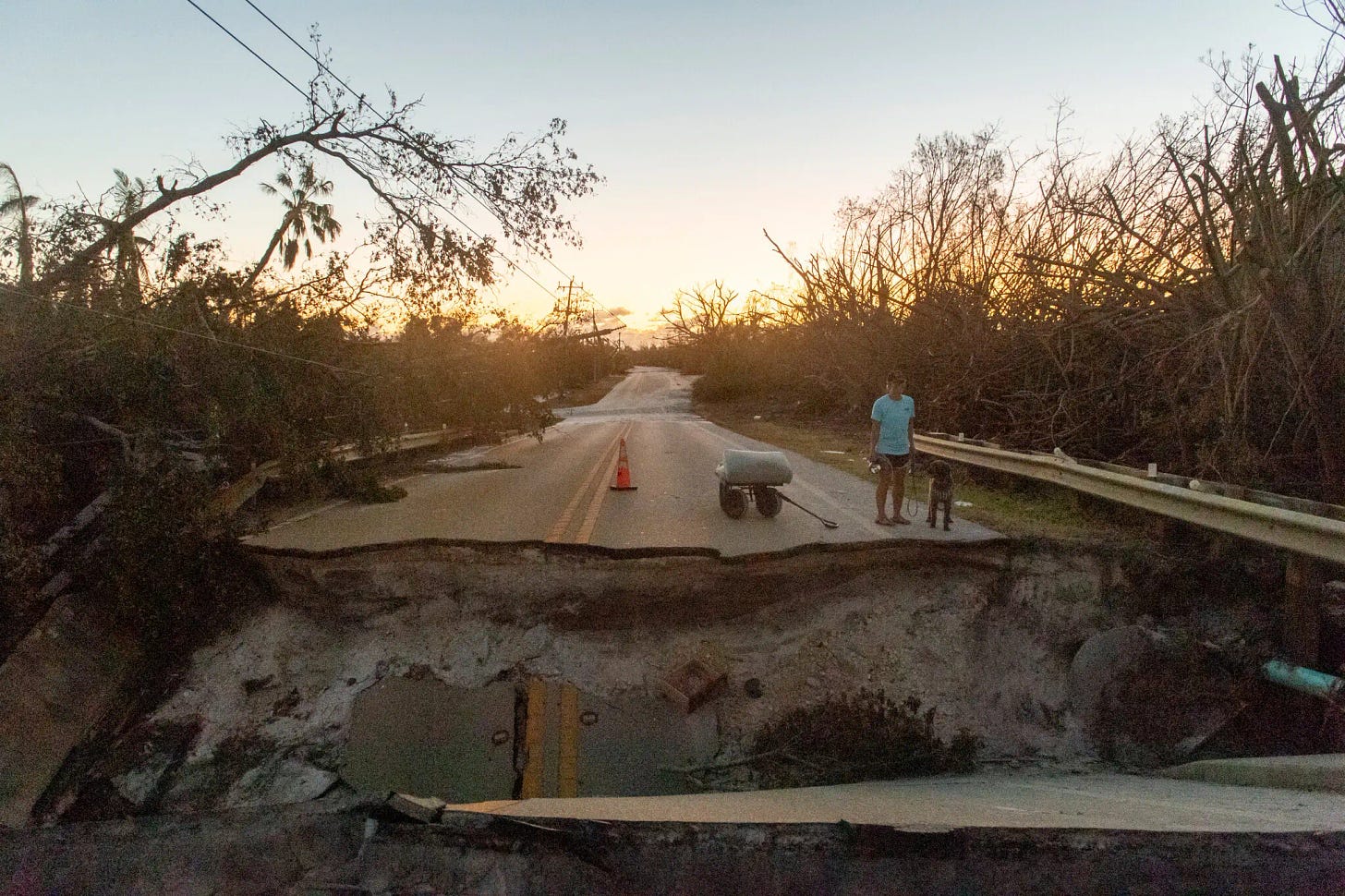
I can’t begin to imagine what Florida and South Carolina residents are experiencing. The devastation of Hurricane Ian has impacted hundreds of thousands of individuals—leaving many without basic resources like food, clean water, electricity, and shelter.
While it is easy—even instinctual—for those not directly impacted to avoid sitting with the reality of this disaster, we must recognize that the lives of our friends, relatives, and neighbors are forever changed by this event. I believe if we are to truly love our neighbors, we must emulate that ministry of Jesus often described as “being moved by compassion.”1
This work of joining alongside in lament often involves questioning God’s compassion and sovereignty—how could God let this happen? Can’t God control creation? Why didn’t God stop this? Where is God in a time like this?
Questions abound. Answers are few.
To be sure, I don’t have the answers to these questions. But I don’t think answers are required to lament with our neighbors.
In moments of crisis and catastrophe, the first step of compassion is not providing theological answers but recognizing our collective humanity—our common life—and helping those in need.
In an interview published earlier this year, I spoke with my friend Lauren—a Fort Myers resident now impacted directly by Hurricane Ian—about ecology and faith formation. In that conversation, Lauren reminded us that we are all dependent on ecosystems and social systems to survive: “we're all interdependent on the air, on each other, on food, on ecosystems, and [more].”
Lauren also reminded us that a theology of ecology requires us to not only pay attention to interactions between humanity and earth, but also humanity to humanity.
In short, ecology and faith are deeply connected.
While in Princeton, the smell of rotting tomatoes led me to reflect more on this reality in an essay published in Sojourners. In this article, I sought to make sense of natural disasters by highlighting 1) the connection between human action and the land and 2) the impact these catastrophic events have on those in need.
Despite the occasional claims of certain Christian pastors, we know disasters are not God’s judgment upon the earth. However, the Bible is clear that creation groans for a future restoration as forests and fields are subjected to the futility of human actions (Genesis 3; Romans 8:22). Instead of stewarding the land, many Christians in the West have colonized and conquered it, privatized and abused it. We have flippantly taken from the earth and given no nurture or care in return, our western colonial imaginations disciplining us to approach creation from a consumer perspective — leading us towards death with little hope for new life.…
…
It is also clear that natural disasters disproportionately impact the marginalized and oppressed. U.S. theologian and biblical scholar Walter Brueggemann explains that when the powerful exert control over the environment, acting as though they are solely in charge of creation, the marginalized suffer the consequences. The Ten Commandments are not only concerned with humanity’s relationship to God and our relationship to one another but also humanity’s relationship to creation (Exodus 20, 23:9-12; Deuteronomy 5). This is most apparent in the commandment to “honor the Sabbath” as it points to how faithful stewardship over the dirt beneath our feet requires knowing when we must rest and when the creation must rest. When humanity refuses to allow creation to rest, the land becomes volatile and inhospitable which impacts the marginalized in a severe way. This is why Jesus preaches about both keeping the Sabbath and protecting the vulnerable (Mark 2:23-28, 3:1-6).
While it is certainly worth wrestling with difficult questions of divine sovereignty amidst disaster, we must not let answering these questions distract us from actually loving our neighbors through word and deed.
Reading:
Women and the Gender of God - Amy B. Peeler (Eerdmans, 2022)
Enfleshing Witness: Body, Race, and Being - M. Shawn Copeland (Fortress Press, 2009)
Watching:
Ramy - Season 3 (Hulu)
Monster: The Jeffrey Dahmer Story (Netflix)
Listening:
Candor - MARGO
Buyer Confidence - Tyson Motsenbocker
Samjhe Na - MC Altaf, Shah Rule, Zaeden
Michelle - stories, Nataly Dawn
When Jesus is described as “having” or “being moved with” compassion, the Greek word used is splagchnizomai. From the word splanxna, this deep, gut-wrenching compassion describes being moved in our most inward parts.




